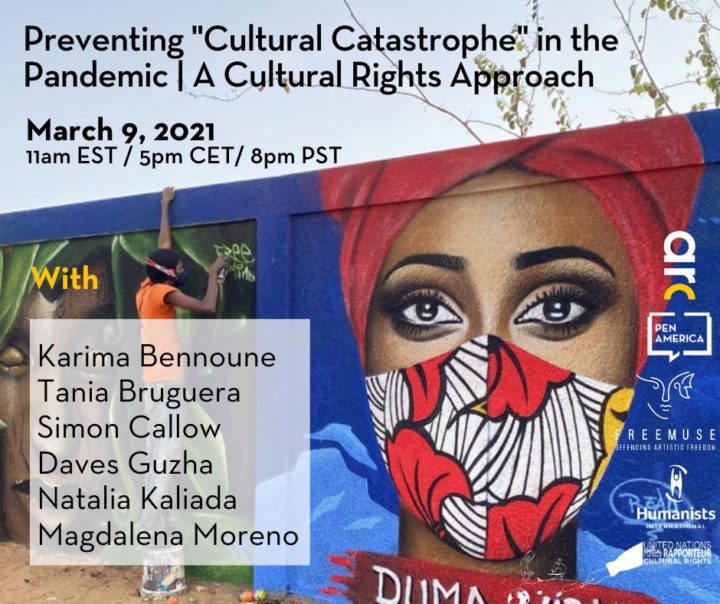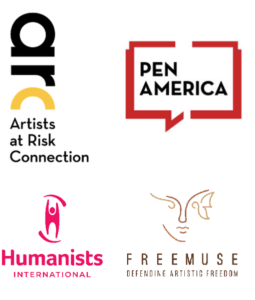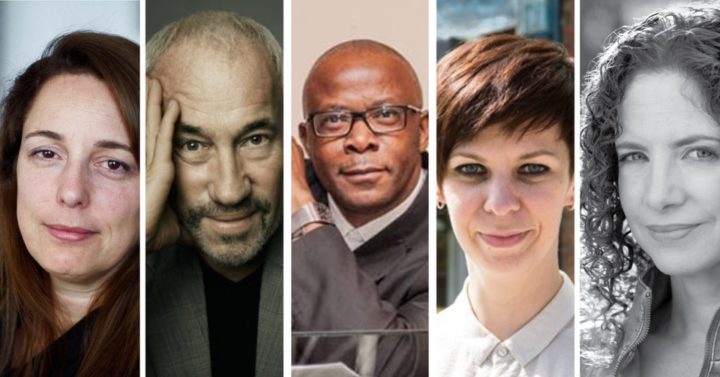CULTURAL ONLINE EVENT
Recently, I attended an online event that tackled the topic of cultural rights across the world affected by a pandemic that has brought on a “cultural catastrophe”. According to the UN special rapporteur in the field of cultural rights, “Cultural rights are fundamental for the respect of human dignity, in the diversity of its expressions” which is the stated purpose of the UN mandate. The current UN-appointed mandate holder, Karima Bennoune, Special Rapporteur in the field of cultural rights since 2015, shared her hard work and addressed the need for greater recognition of and support for cultural rights defenders. Her forthcoming report for the council in 2021 focuses on the impact of the COVID-19 pandemic on cultural rights.

We had a heartwarming poetic speech by Simon Callow, a London based actor, writer, and theatre director best known for Four Weddings and a Funeral (1994), A Room with a View (1985) and Shakespeare in Love (1998), who said that the pandemic cut off artists and artisans from exercising their professions overnight. Most significantly, performing artists felt useless, as the pandemic significantly affected their sense of contribution by not being able to exercise the performing arts inherent power to charm, to divert, to astonish, to inform, to change, above all, to affirm our collective existence, our interdependence, our common humanity. From a medical point of view, it’s understood that keeping social distancing is necessary, even essential, but from the human point of view the phrase social distancing must surely demoralize… the whole point of the art is connection, interconnectedness. Simon Callow reminded us that self-isolation and prolonged lockdown deny our collective communal experiences. He says though, in our enthusiasm, to look to the future for the glimpse to return to life-affirming connection, notably the matter of access that we should insure, the availability of art to everyone that is our cultural rights.
Magdalena Moreno, Executive Director for International Federation of Arts Councils and Culture Agencies (IFACCA) is currently working with governmental agencies and the ministry of cultures from across the globe to tackle the “Cultural Catastrophe” brought on by the pandemic. She outlined some of the issues that the pandemic has done– the damage in the cultural sectors. Magdalena emphasized that we didn’t have the system in place to improve the social and economic condition, have no safety net and, with the fragility of the sector, public funding wasn’t on the rise even before the pandemic and we are seeing cultural budgets being reduced. She is currently a member of UNESCO’s Expert Facility Group.
A video streaming was part of the event that shows how the Cuban authorities use the pandemic as an excuse to suppress artistic expression by preventing any artists’ gathering. Cuban artist Tania Beruguera shared her experience with us. She is an internationally noted performance and installation artist and activist from Cuba who engages political and social issues through her work. Tania has helped promote the term “artivism” which blends art and political action to protest and raise awareness of injustices. She has been arrested and jailed countless times throughout her career for her socially conscious artwork and activism, including, most recently, in January 2021.
One of the panelists from the African continent was Zimbabwean Daves Guzha who presented the African initiative, the revised plan of action for the creative and cultural industry to support the creative organizations in West Africa, Uganda, Kenya and Tanzania. He hopes to organize virtual workshops in alignment with the African Union 2021 theme “Arts, culture and heritage: Levers for Building the Africa We Want”. Daves Guzha is Chairman of the 5th Pan African Cultural Congress Bureau, a platform for Pan-African cultural institutions and civil society organizations working in the arts, culture and heritage field towards the African Union agenda. He has a long career in the creative and cultural sectors as a producer and filmmaker. His team is currently developing an online streaming application called Creative Native that would help African artists to show their artworks on a digital platform in the Pan African context.
How do the Belarus dictators use the pandemic to repress the artistic expression of creators? It was answered by Natalia Kaliada, the co-founding Artistic Director of the Belarus Free Theatre (BEF), and an award-winning theatre-maker, writer and director. She shared her experience and how it was very hard to deal with a repressive regime and raised a concern as to how to insure the safety of artists in Belarus. As an internationally-renowned diplomat and human rights campaigner, Natalia has pioneered a unique method of transversal lobbying and campaigning, uniting artistic, geopolitical, environmental, and human rights concerns, to bring systematic changes to different societies.
The event was hosted by PEN AMERICA in collaboration with Artists at Risk Connection, Humanists International, and FREEMUSE Defending Artistic Freedom.

Photo source: https://artistsatriskconnection.org/story/preventing-cultural-catastrophe-in-the-pandemic-a-cultural-rights-approach










